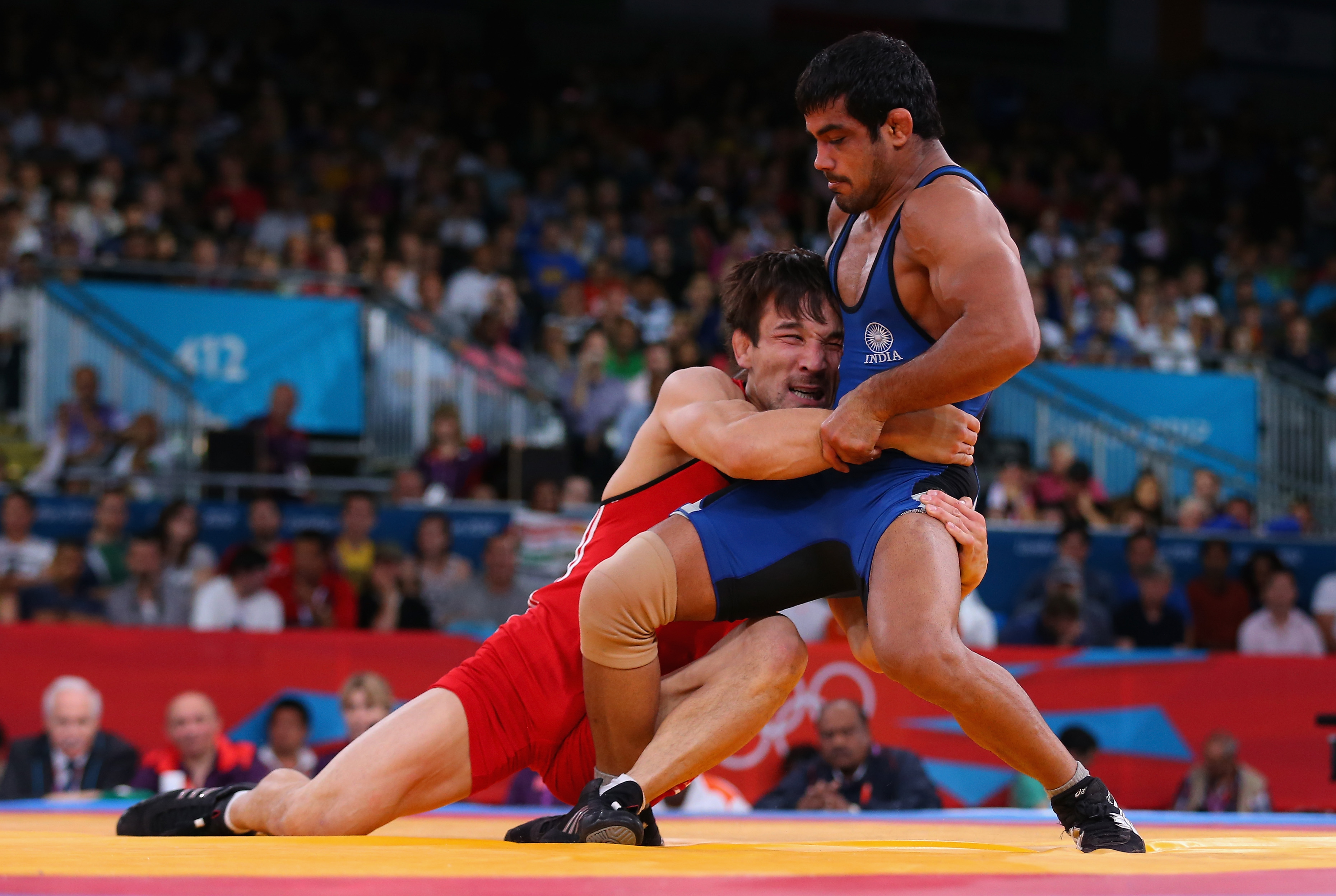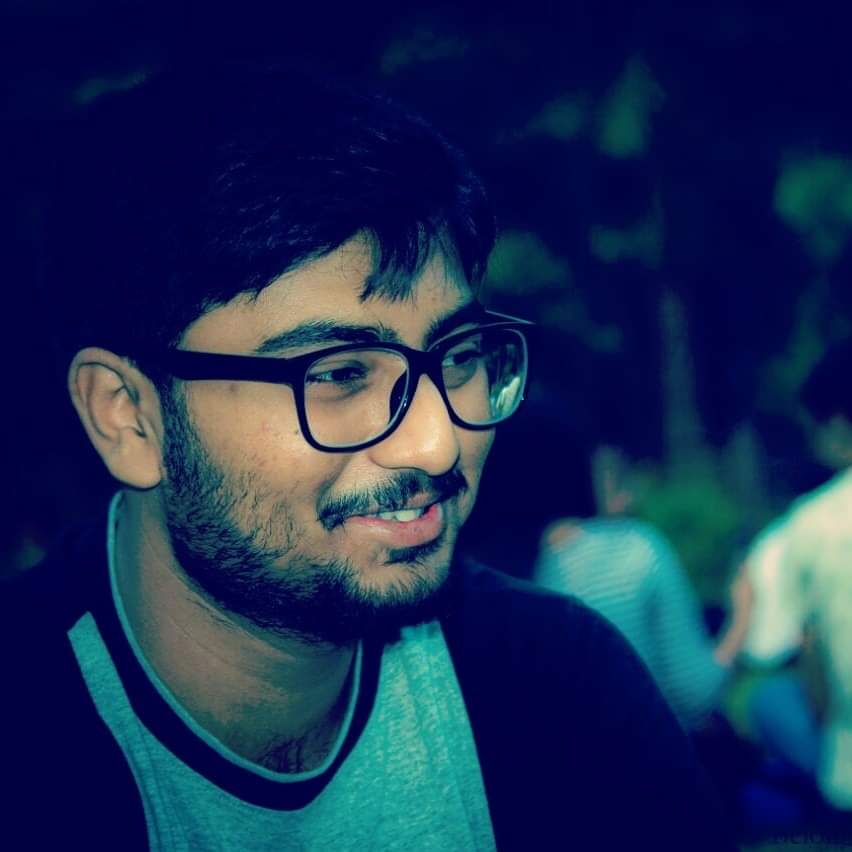2021 Tokyo Olympics | India's Greatest Olympians

Sushil Kumar (right) is the only Indian to have won individual medals in two different editions of the Olympics
|Getty
India won its first Olympic medal at the 1900 Paris Olympics, while the nation earned its first gold medal at the 1928 Amsterdam edition in hockey. Till 2016, India have won a total of 28 medals, but only a few athletes have achieved the immortal status in our country - let's have a look.
India’s journey at the Olympics began at the 1900 Paris Olympics, where Norman Pritchard claimed two silver medals in the men’s 200m dash and men’s 200m hurdles to kick-start India’s tally. Till the 2016 Rio Olympics, the nation has won 28 medals, which includes 9 gold, 7 silver and 12 bronze medals. While each of the medal triumphs have been memorable, a few stand out from the rest.
There have been cases where an athlete has not won a medal, but won millions of hearts with their stellar efforts at the spectacle, against all odds. A total of 119 athletes will be travelling to Tokyo aiming to etch their name in the folklore of Indian sports.
But how many have already attained an immortal status by making the nation proud at the Olympics?
Let us have a look.
Indian Greatest Olympians
Sushil Kumar
Albeit choosing the number one spot was as easy as a cakewalk, with legendary wrestler Sushil Kumar in a league of his own when the debate boils down to Olympics record. The Delhi-based athlete started taking formal training from the age of 14, at the Chhatrasal Stadium, with his first major success coming at the World Cadet Games, where he won a gold medal in his weight category, followed by an Asian Junior Wrestling Championship title in 2000. That was indeed a stepping stone for greater heights, as Sushil Kumar, within three years, went on to establish himself as a force to reckon with.
The year 2003 would prove to be consequential for the grappler as he bagged his first two major international medals – a bronze at the Asian Championships and gold at the Commonwealth Championships. The great build-up did not transpire any magic at the 2004 Athens Olympics, with him ousted in the early stages itself. His escalation to national sensation surfaced at the 2008 Beijing Games, as he claimed a historic bronze medal win in the 66kg Freestyle category to clinch India’s first medal in the discipline since K.D. Jadhav’s heroics at the 1952 Helsinki Games.
Even though top-finishes at the 2010 World Championships and Commonwealth Games documented his constant rise in graph, repetition of a podium finish at the Games was beyond imagination. But, it’s Sushil Kumar we’re talking about. Not only did he claim another medal at the 2012 London Olympics, he bettered the hue of the metal to finish at the second spot. Consecutive medals at the spectacle were enough to etch his name as the greatest athlete India ever produced. Even though that was his last appearance at the Games, gold medals at the 2014 and 2018 Commonwealth Games just added feathers to his cap.
Abhinav Bindra
The shooter from Dehradun has achieved a feat still unmatched in India’s Olympic history – winning an individual gold medal. That still doesn’t take away the fact that the nation is also indebted to Abhinav Bindra for inspiring a generation of youngsters to take up the sport professionally. The rifle shooter was the youngest member of the Indian contingent at the 2000 Sydney Olympics, as he crashed out in the qualification round itself. Determined to attain top-brass status, Bindra resorted to the best possible training facilities, which saw him train in Germany for the most part of the year.
That eventually did reap a premium as he went on to claim gold and a silver medal at the 2002 Commonwealth Games, emerging as one of the brightest prospects ahead of the 2004 Athens Olympics. Bindra did live up to the hype, having registered a Game record in Greece in the qualification round, which was eventually breached once again. However, intense competition in the final saw the Indian finish at the eighth position. Another four years of wait till the shooter gets his next shot at Olympics glory.
‘Better late than never’ as they say seemed to have turned out apt in the context of Abhinav Bindra’s shooting career. At this third attempt, the shooter, brushing aside the previous disappointments, fired his way to a historic gold medal win in the Men’s 10m Rifle event. Bindra happened to outclass reigning Olympics champion in the process, with a surplus of 0.8 points in the final. The Indian national anthem was played at the biggest stage for the first time in 28 years. It was surreal!
Leander Paes
Records ooze out each time we take the name of Leander Paes; such has been the legacy left behind. Interestingly, he was not ruling out the prospect of participating at the 2020 Tokyo Olympics, but the postponement was too tough an ask for his ageing legs. At the age of 47, he finally bid adieu to the Tennis court. Leander sprung into the limelight with title wins at the 1991 US Open and Wimbledon respectively, no sooner than he turned pro that very year. Entering the 1992 Barcelona Olympics as the top-ranked junior player, a quarter-final exit in the doubles event was all he could manage.
Simultaneously growing in stature, Paes had his second shot at the Olympics four years later in Atlanta. Having made the final draw as a wild card entry, the Indian stormed his way to the semi-finals with four back-to-back impressive wins, before he set up a date with legendary player Andre Agassi. Despite handing a tough fight to the veteran in the first set, he went down 0-2 eventually, crashing out of the gold medal contention. However, a win over Brazil’s Fernando Meligeni in the bronze medal match was enough to bring up India’s first individual medal win at the Olympics since 1952.
In spite of the individual honour, Paes shifted his focus to doubles in the future days, which paved his way to become one of the best in the trade ever to grace the game. He did appear regularly at the Olympics, having come tantalizingly close to claiming a bronze medal at the 2004 Athens Olympics in doubles alongside Mahesh Bhupathi. His last appearance at the 2016 Rio Olympics, partnering Rohan Bopanna, ended in a first-round defeat. Having featured in seven editions of the Olympic Games (most by any Indian), Leander Paes is arguably one of the greatest.
Milkha Singh
We cannot have a list of the greatest Indian Olympians and not have the mention of Milkha Singh, can we? Born in Govindpura, present-day Pakistan, the athlete has endured several hardships - losing his family to riots, living in railway stations, being forced to be a dacoit, all before he could actually make a name for himself in athletics. It was mainly due to his brother’s stubbornness that Milkha joined the Indian Army, a decision that changed his life for good. The new journey enabled him to brush away the traumatic experiences of the past and start a new life altogether.
Running on tracks opened up new avenues in his life, as he started to feature in Inter-services tournaments and impressed everyone instantly. Slowly, international competitions came into play, with him claiming gold medals in the 200m and 400m dash at the 1958 Tokyo Asian Games. Even though he featured in the 1956 Melbourne Olympics, the Indian failed to make a mark. However, it was four years later, in Rome, at the peak of his career, that Milkha Singh sent ripples across the nation with his stellar display, even though he did not win a medal.
In the final of the 400m dash, Milkha Singh, leading till the 200m mark, eased off towards the closing stages of the race, as the Indian finished fourth. The results of the intense race could only be determined by a photo-finish, with Milkha Singh missing the bronze medal by a fraction of seconds. That was the closest an India went so close to winning a medal in track and field event, after Norman Pritchard’s double win at the 1900 Paris Games. Milkha Singh is still considered as the ‘greatest athlete India has ever produced.’
Saina Nehwal
Badminton has been a sport that has been monopolized by a few countries, of which India was never part of. However, occasional spurts at the international level were a few occasions when the country got global recognition. However, after the heroics of Prakash Padukone and Pullela Gopichand at the All England Open in 1980 and 2001 respectively, the search for India’s next torchbearer in Badminton was on. However, no one expected a women’s player to fill the void.
Having started her career at a very young age, the year 2008 was when she really reaped the dividends of her hard work, having won a maiden BWF Junior Championships. It was in the same year that she made her Olympics debut in Beijing, with her crashing out in the quarter-finals after a brave campaign that saw her defeat the then world number five Wang Chen, of Hong Kong. However, for the youngster, it was just the beginning.
By the time the next Olympics approached, Nehwal was already one of the leading shuttlers in the world, a Commonwealth Games gold medalist and a bronze medal winner in the Asian Championships (2010).
At the 2012 London Olympics, Saina went in as a serious contender and she played like one having stormed into the semifinals of the women’s event without dropping a set, but the dream run was halted by China’s Wang Yihan. However, in the bronze medal match, the shuttler, with a bit of luck, clinched the bronze medal after her opponent Wang Xin pulled out owing to an injury. India might have produced a bunch of top-brass products in recent times, Saina Nehwal was the trendsetter at the time when the country was in decline.
